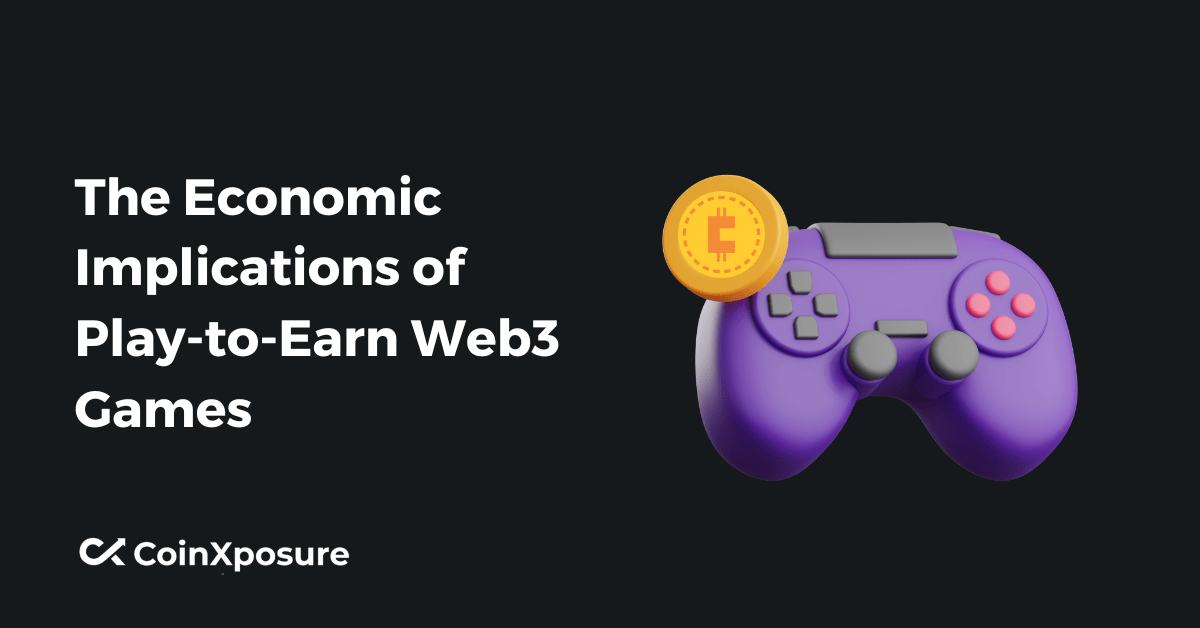
The Economic Implications of Play-to-Earn Web3 Games
The surge of Play-to-Earn Web3 games has not only transformed the landscape of digital entertainment but also given rise to profound economic implications.
Unlike traditional gaming models, these decentralized experiences empower players to earn real-world value through in-game activities.
This intersection of blockchain technology, decentralized finance, and gaming has sparked a paradigm shift, reshaping how value is generated, distributed, and interacted with digitally.
In this exploration, we delve into the multifaceted economic dimensions of Play-to-Earn Web3 games, uncovering their impact on job creation, financial markets, cultural dynamics, and the regulatory landscape.
Play-to-Earn Web3 Games
Play-to-Earn Web3 games are online games that leverage blockchain technology and decentralized systems, allowing players to earn tangible and tradable assets within the game environment.
In contrast to traditional gaming models, players in Play-to-Earn games can accumulate valuable in-game assets, often represented as non-fungible tokens (NFTs) or cryptocurrencies, by actively participating in the game.
This economic model transforms gaming into a potentially profitable endeavor and integrates elements of decentralized finance, creating player-owned economies where virtual assets hold real-world value and can be traded both within and outside the gaming ecosystem.
Economic Implications of Play-to-Earn Web3 Games
The economic implications of Play-to-Earn Web3 games are multifaceted and transformative:
- New Revenue Models
- Job Creation
- Blockchain Integration
- Market Dynamics
- Social and Cultural Impact
- Governance and Regulations
New Revenue Models
Play-to-Earn games introduce alternative revenue streams for players who can earn valuable in-game assets. This challenges traditional gaming revenue models and opens up opportunities for players to monetize their time and skills.
Job Creation
These games create opportunities for game developers, designers, and other related professions as the demand for innovative content grows. The emergence of player-owned economies fosters entrepreneurship within virtual worlds.
Blockchain Integration
Blockchain technology ensures transparency, security, and authenticity of in-game assets. Cryptocurrencies become integral for transactions, contributing to the broader adoption and evolution of decentralized finance.
Market Dynamics
Play-to-Earn ecosystems impact cryptocurrency markets as virtual assets gain real-world value. Speculation and investment in these assets introduce a new dynamic to both gaming and financial markets, with associated risks and rewards.
Social and Cultural Impact
Play-to-Earn models redefine the value of digital assets, encouraging community engagement and collaboration. However, they also raise questions about inclusivity, accessibility, and potential disparities in income distribution.
Governance and Regulations
The decentralized nature of Play-to-Earn ecosystems poses challenges for traditional regulatory frameworks.
The rise of decentralized autonomous organizations (DAOs) within gaming introduces new governance models, requiring a balance between innovation and consumer protection.
Play-to-Earn Web3 games represent a revolutionary convergence of gaming, blockchain, and decentralized finance, reshaping economic paradigms within the digital realm.
Future of Play-to-Earn Web3 Games
The future outlook for Play-to-Earn Web3 games is poised for continued innovation and influence across various domains:
- Evolution of Play-to-Earn Models
- Integration with Broader Web3 Ecosystems
- Technological Advancements
- Mainstream Adoption
- Regulatory Frameworks
Evolution of Play-to-Earn Models
Anticipate further refinement and diversification of Play-to-Earn models, exploring new ways for players to earn, trade, and engage with in-game assets. Continuous iteration will drive user adoption and retention.
Integration with Broader Web3 Ecosystems
Expect deeper integration of Play-to-Earn games with broader Web3 ecosystems, creating interconnected virtual worlds and economies.
Cross-platform interoperability may become a key feature, allowing assets to move seamlessly between games and applications.
Technological Advancements
Continued advancements in blockchain technology, scalability solutions, and smart contract capabilities will enhance the overall user experience, addressing limitations such as high transaction costs and scalability issues.
Mainstream Adoption
As the Play-to-Earn model matures, it may see increased adoption among mainstream gamers. This shift could reshape traditional gaming business models as players become accustomed to earning real-world value from their gaming experiences.
Regulatory Frameworks
Regulatory bodies are likely to adapt and establish frameworks to address the unique challenges posed by decentralized gaming ecosystems. Striking a balance between fostering innovation and ensuring consumer protection will be crucial.
The future of Play-to-Earn Web3 games holds promise for continued innovation, integration into broader digital ecosystems, and a potential shift in how individuals perceive and engage with both gaming and the digital economy.
Adaptation to technological advancements and regulatory considerations will be crucial for shaping this dynamic landscape.
Conclusion
The economic implications of Play-to-Earn Web3 games mark a pivotal shift in the gaming and digital finance landscape. These games, fueled by blockchain technology and decentralized finance, redefine the relationship between players and virtual worlds.
The transformative journey unfolds with the creation of new revenue models, job opportunities, and blockchain integration, leading to a profound impact on market dynamics and cultural norms.
As Play-to-Earn Web3 games continue to shape the digital economy, stakeholders, including game developers, regulators, and players, must navigate this dynamic terrain.
Striking a balance between fostering innovation, ensuring regulatory compliance, and addressing societal concerns will be imperative for the sustained growth and success of this groundbreaking economic paradigm within the gaming industry and beyond.





